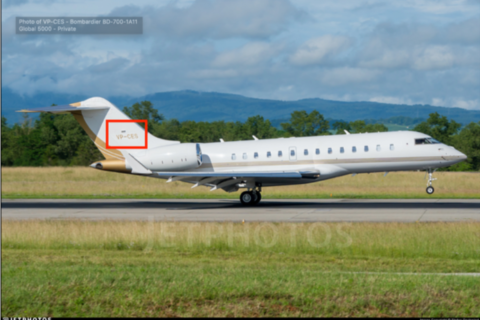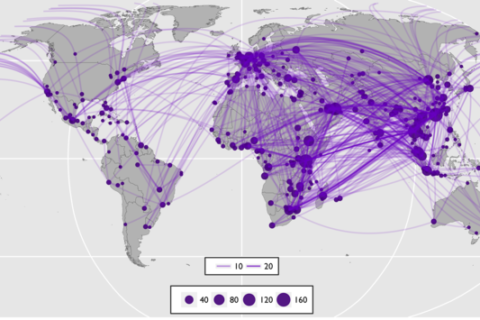Above Us Only Stars

Using publicly available data and commercial technologies, we detect and analyze patterns of GNSS spoofing in the Russian Federation, Crimea, and Syria that demonstrate the Russian Federation is growing a comparative advantage in the targeted use and development of GNSS spoofing capabilities to achieve tactical and strategic objectives at home and abroad.
Executive Summary #
GPS and other Global Navigation Satellite Systems (GNSS) are used in everything from cellular communication networks, to basic consumer goods, high-end military systems, and stock trading inputs. But these systems are vulnerable: by attacking positioning, navigational, and timing (PNT) data through electronic warfare (EW) capabilities, state and non-state actors can cause significant damage to modern militaries, major economies, and everyday consumers alike. With recent technological advances, the tools and methodologies for conducting this interference are now at a high risk for proliferation. GNSS attacks are emerging as a viable,
disruptive strategic threat.
In this report, we present findings from a year-long investigation ending in November 2018 on an emerging subset of EW activity: the ability to mimic, or “spoof,” legitimate GNSS signals in order to manipulate PNT data. Using publicly available data and commercial technologies, we detect and analyze patterns of GNSS spoofing in the Russian Federation, Crimea, and Syria that demonstrate the Russian Federation is growing a comparative advantage in the targeted use and development of GNSS spoofing capabilities to achieve tactical and strategic objectives at home and abroad. We profile different use cases of current Russian state activity to trace the activity back to basing locations and systems in use.
- In Section One, we examine GNSS spoofing events across the entire Russian Federation, its occupied territories, and overseas military facilities. We identify 9,883 suspected instances across 10 locations that affected 1,311 civilian vessel navigation systems since February 2016. We demonstrate that these activities are much larger in scope, more diverse in geography, and longer in duration than any public reporting suggests to date.
- In Section Two, we examine the role of Russian GNSS spoofing for very important person (VIP) protection. We find a close correlation between movements of the Russian head of state and GNSS spoofing events. We believe the Russian Federal Protective Service (FSO) operates mobile systems to support this activity. Through a review of Russian procurement data, we identify one possible mobile system, manufactured by a company closely connected to the FSO.
- In Section Three, we profile the use of Russian GNSS spoofing for strategic facilities protection. We identify potential technology in use for facility protection in Moscow. We also highlight spoofing activities taking place in proximity to protected facilities on the coast of Russia and Crimea in the Black Sea. Through a line of sight analysis, we judge the most likely placement for a GNSS spoofing transmitter on the Black Sea to be at a multi-million dollar “palace,” formerly owned by reported family members of senior FSO officers and previously reported to be built for President Putin.
- Finally, in Section Four, we expose the use of GPS spoofing in active Russian combat zones, particularly Syria, for airspace denial purposes. This is a capability scarcely reported in the public domain. Using data from a scientific sensor on the International Space Station (ISS), we are able to identify ongoing activity that poses significant threats to civilian airline GPS systems in the region. We pinpoint the most likely location for the system to the northwestern quadrant of Khmeimim airbase, and identify potential military-grade EW systems in use through publicly available information.
The Russian Federation has a comparative advantage in the targeted use and development of GNSS spoofing capabilities. However, the low cost, commercial availability, and ease of deployment of these technologies will empower not only states, but also insurgents, terrorists, and criminals in a wide range of destabilizing state-sponsored and non-state illicit networks. GNSS spoofing activities endanger everything from global navigational safety to civilian finance, logistics, and communication systems.





